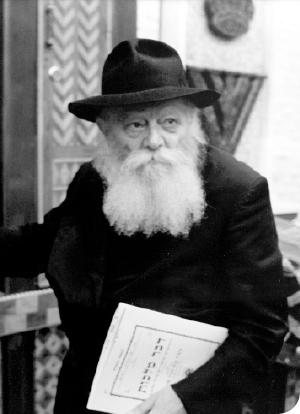AN ANSWER TO ZIONISTS
From Chapter Fourteen of Rabbi Shloma Majeski’s Likkutei Mekoros, Volume 2. (Underlined text is the compiler’s emphasis.)
 Translated by Boruch Merkur
Translated by Boruch Merkur
“And G-d spoke … speak to … May G-d bless you … May He shine … May He lift His face … And you shall set My name … And I will bless you.”
May the Alm-ghty seal [the fate of] each of you [individually] and everyone together, and grant you a g’mar chasima tova for a good and sweet year, with overt and revealed goodness, “below ten handbreadths.” May you all be blessed with abundant and wondrous success, especially in the study of both the revealed as well as the esoteric dimensions of the Torah. And may the Torah study bring to the practical fulfillment of Mitzvos in a scrupulous and beautiful way, along with good health, joy, and gladness of heart.
May you experience a Hakhel in the study of Torah, gathering together all dimensions of the Torah – p’shat (literal), remez (hermeneutics), drush (homily), and sod (mysticism), unifying them as one until they actually become one. And may this unity bring about the simple, perfect unity of “And the glory of Havaya will be revealed and all flesh will together see” (equally ––Rashi VaYeira 22:8). As a result of this unification in Torah, the true and complete Redemption through Moshiach Tzidkeinu will be drawn closer and become revealed,* literally in our times, “below ten handbreadths.”
May you be blessed with a good year and a chasima and g’mar chasima tova.
(Blessing to the T’mimim, prior to Kol Nidrei, 5727)
NOTES:
*It says in Midrash Rabba (11:20), “He [Moshiach] will be revealed and [then] concealed, etc.” And in Rambam’s Laws of Kings (Chapter 11, end) it says, “b’chezkas … b’vadai – presumed to be Moshiach … with certainty.” See the well-known correspondence of the Rebbe (Rashab), nishmaso Eden, in his elucidation of the saying of our Sages, “Ben Dovid comes” in contrast with “Dovid comes.”
[In a letter from 5664, the Rebbe Rashab responds to the use of a teaching from the Alter Rebbe’s Siddur misconstrued to support Zionist ideologies. Specifically, the Rebbe challenges the notion that the advent of Moshiach takes place after the ingathering of the exiles (leaving room for a non-Messianic leader to lead the Jewish people to the Holy Land). The Rebbe Rashab points out how the correct reading of the Siddur is that the advent of Moshiach actually precedes not only the ingathering of the exiles but also the building of the Beis HaMikdash. When the Siddur speaks about the ingathering of the exiles taking place prior to “biyas Moshiach” it refers to the revelations Moshiach will bring about below, a later stage of Moshiach’s impact on the world (which the Rebbe Rashab links to Moshiach’s revealing the reasons of the Mitzvos, an esoteric dimension of Torah knowledge).
[In the lengthy discussion of the order of events in the Messianic Era, the Rebbe Rashab distinguishes between “Ben Dovid” and “Dovid” (which the Rebbe MH”M references in the footnote above), appearing at the end of the following translated selection of the letter.]
Certainly it will be [none other than] Moshiach who is responsible for the ingathering of the exiles. And after that there will the G-dly revelations of the Messianic Era, the concept of “Malchus Beis Dovid.” […]
The Beis HaMikdash is destined to be built prior to … “Malchus Beis Dovid” … (See HaBach’s commentary in Orach Chaim siman 118 regarding the concept of Birchas Yerushalayim, where he explains at length how everything must be prepared in advance.) After the Beis HaMikdash and Yerushalayim are built, and the throne of Dovid is established, Dovid then comes and sits upon the throne that G-d prepared for him.
This should not be seen as contradicting what Rambam writes – that Moshiach will build the Beis HaMikdash – for certainly the advent of Moshiach precedes the building of Yerushalayim and the Beis HaMikdash. Indeed, the Beis HaMikdash will be built by Moshiach, and he shall be the one who orchestrates the ingathering of the exiles. But only thereafter will there be his “kingship,” which is referred to as “Malchus Dovid.”
Thus, the Gemara is precise in saying, “When Yerushalayim is build, Dovid comes”; it does not say “Ben Dovid comes.” The reason for this specific wording is that Moshiach is called in several places in Midrash Rabba and in Gemara by the name Ben Dovid, yet here it says “Dovid comes,” referring to his kingship [and not to him as an individual, for he had already arrived and performed wondrous deeds – e.g., building the Beis HaMikdash], as it is written, “My servant, Dovid, is king upon you” (Yechezkel 37:24), see the commentary of the Metzudos there.
 March 8, 2017
March 8, 2017
Reader Comments